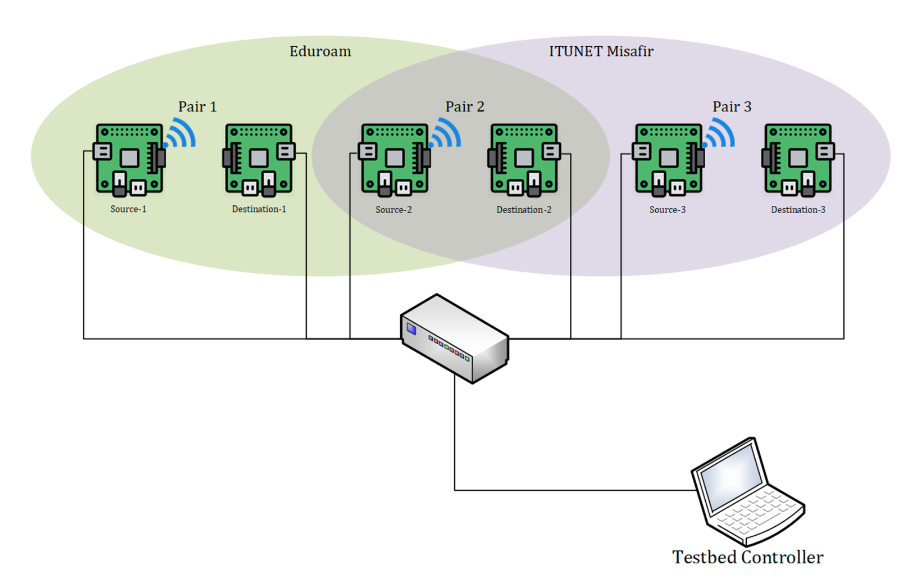Smart WiFi Management
WLAN Monitoring and Management Framework
This project aims to create a sophisticated application for adaptive Wi-Fi parameter tuning, aiming to substantially enhance wireless network connectivity. The core of this initiative involves the development of a Raspberry Pi-based testbed, which is designed to handle configurable network loads and can seamlessly connect to various SSIDs. This flexible and dynamic testbed serves as the backbone for our experimental and development activities.
A key aspect of this project is the refinement of Data-Link layer parameters. This involves strategic selection of non-competing channels and assignment of optimal channel width, both critical for enhancing the Quality of Service (QoS) for all network participants. By optimizing these parameters, the application aims to reduce network congestion, improve data throughput, and ensure a more stable and reliable wireless connection.

The project is structured around several pivotal milestones:
-
Enhanced Wi-Fi Management and Analytical Capabilities: We plan to develop an extensible testbed utilizing commercial-off-the-shelf (COTS) products. This testbed will not only serve as a platform for testing and validation but also act as a prototype for potential real-world applications. It will enable us to experiment with different network configurations and understand the impact of various Wi-Fi parameters on network performance.
-
Development of an Indoor Testing Framework and Control Libraries: A significant part of the project is dedicated to creating a comprehensive framework and libraries for monitoring Wi-Fi usage. This includes detailed analysis of crucial Wi-Fi parameters such as Modulation and Coding Scheme (MCS) number, Channel Number, Channel Bandwidth, Transmit Power, and Received Signal Strength Indicator (RSSI). By closely monitoring and understanding these parameters, the application can make informed decisions to optimize network performance.
-
Support for Real-Time Graphical User Interface (GUI): To enhance the user experience and provide intuitive control over the testbed, the project includes the development of a real-time GUI. This interface will not only allow for the visualization of network performance metrics but also enable users to issue control commands directly to the testbed. This feature is aimed at simplifying the process of network management and making it more accessible to users, regardless of their technical expertise.
Overall, this project represents a comprehensive effort to improve wireless network efficiency through advanced Wi-Fi parameter tuning. By leveraging a Raspberry Pi-based testbed and developing sophisticated management and analysis tools, the project aims to address common wireless networking challenges and pave the way for more robust and efficient wireless communication systems.